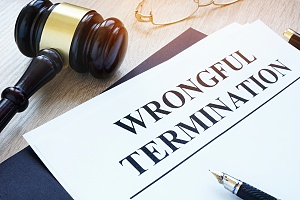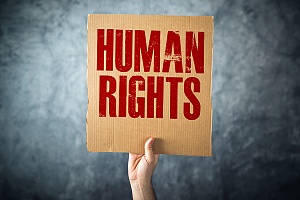 Have you been asked to do something illegal at work, or terminated in a way that didn’t conform to the handbook or rules and regulations? These wrongful termination actions can be pursued legally in Virginia if the circumstances are right. Though wrongful termination is illegal in Virginia and DC, these cases are only brought to court in a limited set of circumstances. All states allow a private-sector employee to be terminated by the employer for any reason or no reason at all – unless the contract specifically states otherwise. Understanding Virginia wrongful termination laws can help to aid in your overall understanding.
Have you been asked to do something illegal at work, or terminated in a way that didn’t conform to the handbook or rules and regulations? These wrongful termination actions can be pursued legally in Virginia if the circumstances are right. Though wrongful termination is illegal in Virginia and DC, these cases are only brought to court in a limited set of circumstances. All states allow a private-sector employee to be terminated by the employer for any reason or no reason at all – unless the contract specifically states otherwise. Understanding Virginia wrongful termination laws can help to aid in your overall understanding.
Personal differences or favoritism are, therefore, reasonable reasons to fire someone in this setting. Public policy exceptions have been made, however, to this “at will” employment. Our lawyers will help find these exceptions in a wrongful termination case that could bring you the compensation you should have gotten.
Wrongful Termination In Virginia
There are only three exceptions to “at will” employment in Virginia. The first is for simply exercising a right that is stated in the contract – such as employee benefits or compensations. Maternity leave is a great example of this kind of wrongful termination at the time of this writing and a source of great debate. The second is when the employer terminates an employee who refuses to act illegally. An example of this could be being ordered to hack into a competitor’s system and cancel orders or raise prices.
The third is when the person is entitled to protection under a certain statute – such as protecting someone asserting rights under the law. Other examples of protection under statues could include peaceful protesting under right of assembly, sharing a personal story with the press under freedom of speech, or obtaining a permit to carry a concealed weapon under the second amendment.
Virginia Human Rights Act (VHRA)
 The Virginia Human Rights Act, or VHRA, has been modified to prohibit discrimination in the workplace based on religion, sex, national origin, pregnancy, marital status, race, color, etc. This is to prohibit wrongful termination claims on these bases and on the VHRA in general. Other remedies must prevail for a wrongful termination claim – such as reporting health or safety violations and consequently being terminated.
The Virginia Human Rights Act, or VHRA, has been modified to prohibit discrimination in the workplace based on religion, sex, national origin, pregnancy, marital status, race, color, etc. This is to prohibit wrongful termination claims on these bases and on the VHRA in general. Other remedies must prevail for a wrongful termination claim – such as reporting health or safety violations and consequently being terminated.
Other examples of this kind of wrongful termination could include asking for maternity leave, an extension on maternity leave, having to take vacation days for a reason other than vacation days, or taking sick leave, even if the sickness or illness was incredibly serious. The person, or plaintiff, has a two-year time frame to file a claim for being wrongfully terminated. If there are no other state remedies, a federal claim may not preclude or prevent the employee from also pursuing a claim in a Virginia state court for wrongful termination.
Wrongful Termination In the District of Columbia
There is a narrow, three faceted exception policy to the “at will” employment doctrine. This covers employees fired for refusing to engage in an order that requires illegal conduct, using a statutory right, or reporting illegal conduct on behalf of their employer. A wrongful termination claim must show that an action on the employer’s behalf violated an official policy established by either regulation or statute. D.C. courts will use analysis on a case by case basis to establish the claim as lawful.
Examples
Examples of each can be found in the Virginia section. However, espionage of foreign competitors, bribery, and other examples should be included in the different areas. For example, if rats are in the kitchen of a restaurant and the employer doesn’t report it but an employee does, the employer cannot rightfully terminate that employee for this act. The same goes for a construction worker who reports unsafe scaffolding in a construction site.
 However, civil action for wrongful termination can only be pursued if there are no other remedies for the allegation readily available in D.C. This makes a federal claim the last resort for everyone. It can only be pursued when no other claim is given under the DC or federal law. The person, or plaintiff, has three years to file the claim in DC, as opposed to two in Virginia.
However, civil action for wrongful termination can only be pursued if there are no other remedies for the allegation readily available in D.C. This makes a federal claim the last resort for everyone. It can only be pursued when no other claim is given under the DC or federal law. The person, or plaintiff, has three years to file the claim in DC, as opposed to two in Virginia.
Contact Our Firm For More Information
If you are unsure if you’ve terminated wrongfully, our lawyers can help you determine if it was indeed wrongful termination and if it was a violation of state or federal laws. Our informed team will help you with Virginia wrongful termination laws, and aid you in understanding your case. Call our office at 703.828.0900 or contact us online for a legal consultation.

